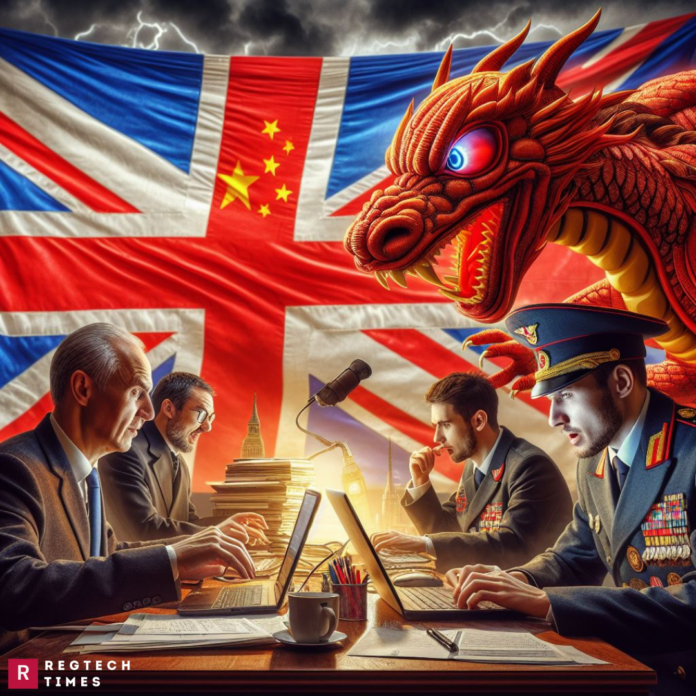China’s ambassador was summoned to the Foreign Office in the UK for alleged spying, coercive cyber threats and interference, leading to a strong rebuke from Foreign Secretary Lord Cameron.
The UK expressed anger over China’s behaviour, including cyber-attacks, espionage, and issuing bounties. This action followed the charging of three individuals under the National Security Act, related to a Hong Kong intelligence service.
British spy chief Anne Keast-Butler warned of China’s irresponsible actions in cyberspace, making the internet less secure.
Government Communications Headquarters is an intelligence and security organisation responsible for providing signals intelligence and information assurance to the government and armed forces of the United Kingdom.
GCHQ devotes significant resources to the China mission due to the scale of the challenge. Keast-Butler emphasized the need to respond to China’s coercive actions, which pose a risk to international norms. She also highlighted the growing links between Russia’s intelligence services and proxy groups, noting Russia’s acute and globally pervasive threat.
Russian Espionage Capabilities
Russian espionage capabilities in European countries have been a topic of concern and debate, with experts highlighting the sophisticated methods employed by Russian intelligence agencies to gather information and influence events. The European continent, with its diverse political landscape and strategic importance, has been a focal point for Russian espionage activities, raising alarms among European governments and intelligence services.
Russian espionage efforts in Europe are multifaceted, encompassing traditional intelligence gathering, cyber espionage, and influence operations. Russian intelligence agencies, particularly the Foreign Intelligence Service (SVR) and the Main Intelligence Directorate (GRU), have been implicated in various espionage activities across Europe, including the United Kingdom, Germany, France, and other countries.
One of the most notable incidents involving Russian espionage in Europe was the poisoning of former Russian spy Sergei Skripal and his daughter Yulia in Salisbury, UK, in 2018. The UK government accused the Russian government of orchestrating the attack, which led to a diplomatic fallout between the two countries and resulted in the expulsion of Russian diplomats from various European countries.
Coercive Cyber Threats
Cyber espionage has also been a major component of Russian espionage activities in Europe. Russian hackers have been accused of targeting European government agencies, political organizations, and critical infrastructure to steal sensitive information and disrupt operations. The infamous hacking group known as Fancy Bear, believed to be affiliated with the GRU, has been linked to several high-profile cyber attacks in Europe.
You May Also Like to Read
In addition to traditional espionage and coercive cyber threats, Russia has also been accused of conducting influence operations to sway public opinion and undermine democratic institutions in European countries. The use of social media platforms and disinformation campaigns to spread propaganda and sow discord has raised concerns among European officials about the integrity of their democratic processes.
European governments and intelligence services have responded to the threat of Russian espionage by increasing their counterintelligence efforts and cooperating more closely with allied countries. The European Union has also taken steps to combat disinformation and strengthen cybersecurity across member states.
Despite these efforts, Russian espionage capabilities in European countries remain a significant concern, highlighting the ongoing challenge of countering foreign intelligence threats in an increasingly interconnected world.
The UK is working with its Five Eyes intelligence allies to address the coercive cyber threats related challenges. Iran was also mentioned as using coercive cyber threats, developing cyber espionage and disruptive capabilities. Keast-Butler emphasized the importance of countering these threats and sharing intelligence to protect against malign activities.



